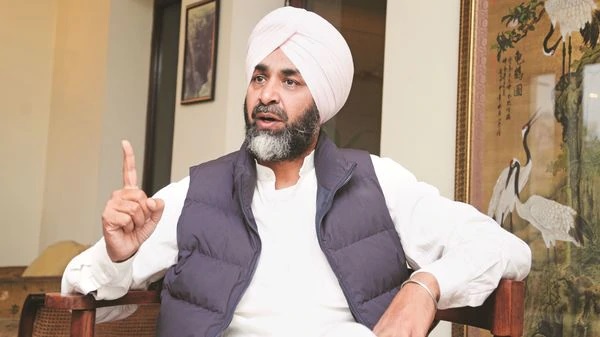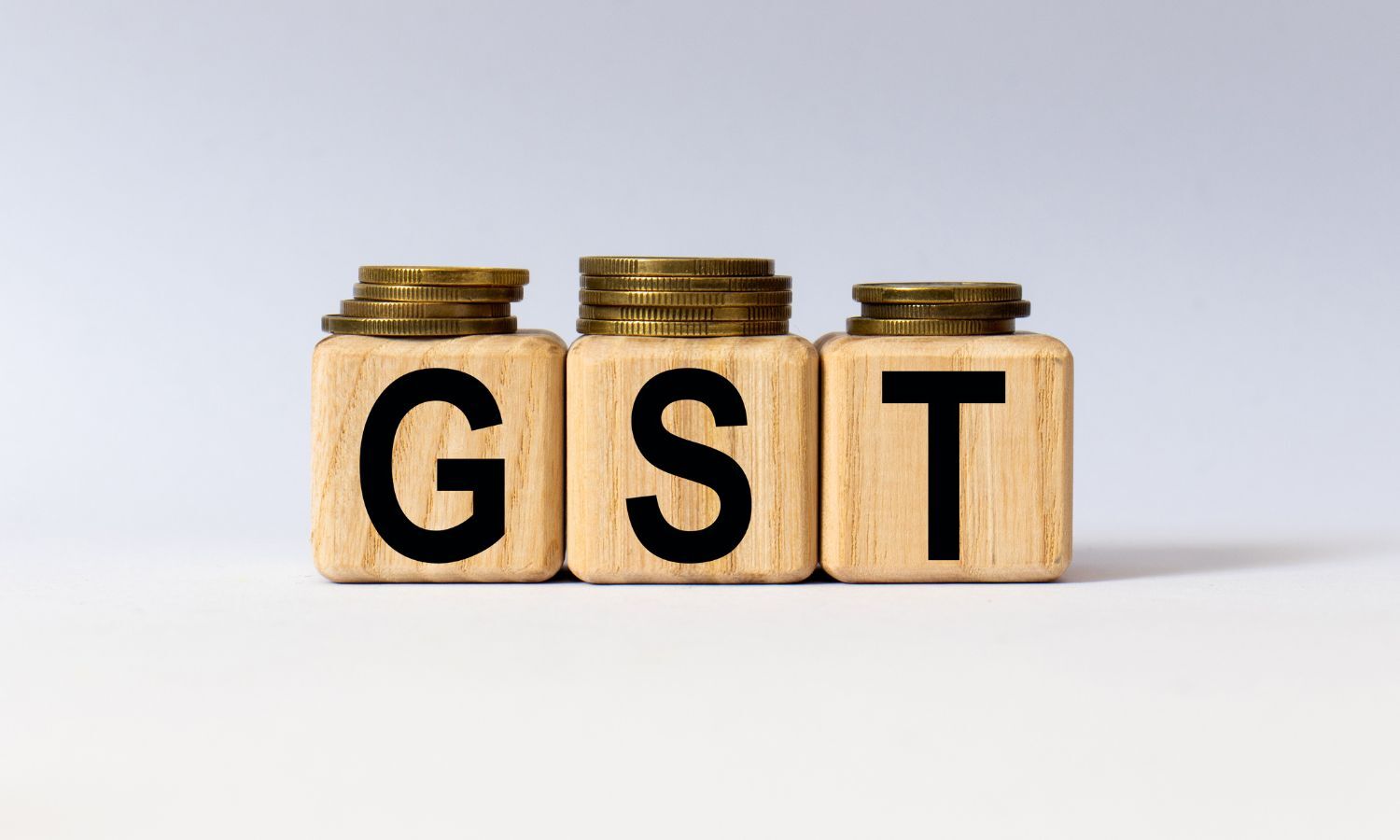
The time has come for GST 2.0, says Manpreet Singh Badal
Manpreet Singh Badal, Punjab’s minister for finance, planning and programme implementation and a senior leader of the Congress party, is worried about the state’s ability to pay salaries and bills due to a delay in getting Goods and Services Tax (GST) compensation from the Union government. The slippage in tax receipts amid an economic downturn is increasingly becoming a point of friction in Centre-state relations, threatening the legacy of consensus-based decision making in GST Council, an important federal body. In an interview to Mint, Badal, a lover of Urdu poetry, argues that the time has come for redesigning GST and explains how Punjab is diversifying its economy to become what he calls the Denmark of India. Edited excerpts:
Five states including Punjab, have expressed concerns about how the GST regime has panned out. What is going on?
I shall not speak about what happened with the other states. When GST was being negotiated, 23% of Punjab’s revenue came from food grains. We knew that if we go in for GST, Punjab would be structurally damaged. We were not naive, but we decided that it was in the highest interest of the nation that GST must be brought in. It was a leap of faith, a sacrifice, that Punjab made. We were also assured of adequate compensation for five years, after which states should be able to stand on their feet. GST compensation, which used to be given every month initially, has subsequently been made once in two months. We were expecting the compensation for August and September sometime in October. October went past. Now even November is about to finish. There is no explanation from the central government. This is not the way a modern country runs. The GST compensation due is ₹2,100 crores. We have some arrears pending of another ₹2,000 crores. For a small state like Punjab, the outstanding amount is ₹4,100 crores. This is grossly unfair. I wake up three times a night thinking of this figure. We have to go for fresh borrowings which comes at a cost. The state’s development programme suffers.
But how come only non-BJP states complain about delays in receiving GST compensation?
That was incidental. We had a meeting of the Empowered Committee of State Finance ministers, the predecessor of GST Council, for fulfilling certain statutory obligations. I happened to be there. I had met the Union finance minister (Nirmala Sitharaman) a few weeks ago regarding the GST compensation arrears. She promised to look into it. The central government recently cut corporate tax rate from 30% to 22%, which meant a revenue loss of about ₹1.5 trillion. Punjab’s share in that will be ₹1,500 crores, which I have budgeted for this financial year. We are denied of that. Since GST has been brought in, the central government has been levying certain duties and taxes which do not go to states. In the last 2-2.5 years, the Centre has collected almost ₹3 trillion, in which states are denied their share of 42%. About 70% of the development activity is carried out by states. It is a double whammy when the devolution of central taxes to states is hit and we are not paid in time for months on end.
In the last one year, this is yet another point of friction between the union and state governments. We know that there has been a history of consensus in GST Council so far. Do you think these kinds of unresolved issues, which are getting ever more fundamental in nature, will disrupt that?
My understanding is that this is going to be the new normal. We have to get used to this crisis all the time. My fear is that in March, we may be told that we will only get 10 months of compensation, not for the full 12 months.
What does it mean for the consensus? The states signed off their fiscal powers in the promise of a compensation.
What we need is a dispute resolution mechanism be there. Why should the fate of states be in the hands of a central government bureaucrat? If the sovereign powers belong to the GST Council, then the Council must be able to write the cheques. That decision should be left with the Council, not to a secretary in the central government handling revenue or expenditure. We may belong to different political configurations, but we all want India to do well. I fear we have a faulty GST design. A faulty design can never be rectified. It is like urban planning. Once it is hap hazard, one can never fix it. I think the time has come to revisit and re-design GST. We can call it GST 2.0.
What is the core flaw in the current design?
When GST was introduced, we were told that the GDP will grow by 1-2 percentage points and that it was a once in a life time chance. We were told exports will become competitive, tax compliance will improve and revenue collection will go up. On all the four issues, we have failed. There is something wrong with the system, which we will have to figure out.
Will you flag these issues in the GST Council?
We will be happy to work quietly with the government. We need to pool in our experience and talent. The Council is not a political forum where one tries to score points. We would want India to become a super power.
GST was debated for many years. After its rollout in 2017, states are getting compensation till 2022. This is good enough time for states to think through and implement a strategy to grow their economies, income levels and revenue receipts. Besides, states have the power to reform land and labour. Why are states still obsessed with central government compensation?
We have gone through this. On 5 and 6, December, we are having an investor summit. If you go through the industrial policy of Punjab, it is probably the best in the country. There is a sense of urgency and desperation in attracting investments. We have to diversify our economy. Some other states may refund state component of GST (SGST) to businesses, but we are the only state that will refund Integrated GST (tax on inter-state supplies) too. That is, if you sell your goods outside Punjab, we will refund the tax paid (on raw materials and services). We have a liberal policy on land allotment. In the last two years, we have been able to attract almost ₹50,000 crore of investments. We are diversifying our economy from food grains. Punjab could become the Denmark of India, a dairy state. By this I do not mean merely producing milk. We want to be able to supply quality cattle to rest of India. Currently, an average Indian cow yields about 3,000 litres per lactation. It is about 12,000 in EU or in the US. Punjab is interested in scaling up the breed we have developed in our state, that can double the yield to 6,000 litres. But we encountered a problem. Our breeding programme was focused on cows. But we are now caught up in the lunacy of ‘gau rakshaks’ (cow protectors) who do not allow transportation of cows. We were earlier selling cows worth ₹2,000 crores to the rest of the country. But the attacks on cow transportation has affected this. Attackers do not recognise these are milch cattle. Now we are developing high yield buffalos. But it will take some time.
Are you saying that you are consciously pivoting Punjab agriculture from paddy etc to new value added, less water intensive crops?
India’s food policy is rooted in the sixties where cereals were central to food security. While India sits on mountains of food grain, an average Indian is still malnourished. Our food policy must change to nutrition policy. An average Indian must have access to milk, vegetable, fruit and Punjab could very well become the next key supplier of vegetables and fruits. For that, a little bit of hand holding by union government is required.
There was a phenomenal consensus at one point of time in GST council. But now it is getting frayed as the pressure of revenues start mounting. Do you think this consensus is under siege and the idea of cooperative federalism is also fraying?
As far as GST is concerned, we would not want this to become a political conflict. Decisions taken at the GST council must be in the highest interest of India and we will try our best to preserve that consensus. If you want to see India as a superpower, we will have to make it happen. There is a saying in Punjabi that "dosti mei, dushmani mei aur aashiqui mei, insaan ko dil toh bada hi rakhna chahiye" (one must be large-hearted in friendship, enmity and love).
The friction in centre-state relations is also getting reflected in the Fifteenth Finance Commission's (FFC)discussions with states. The central government’s revenue growth is sluggish while it has to find resources for new welfare schemes like income support for farmers. In view of these, are you prepared for accepting a smaller share of central taxes at least in percentage terms, if not in absolute terms, to be shared among all states for the next five years starting April?
I think one point of difference (between the FFC and states) was on population. Some of the states have improved on their total fertility rate (TFR) and fear that they will actually be punished for that. Punjab's TFR is 1.6% which is below the replacement rate. That means that states that have not performed (in population control) will be rewarded (in the FFC award) and states like Punjab will be punished. Secondly, if funds for defence and internal security are to be kept aside before devolution to states, then there will be nothing left of it. Most states felt this was unfair because they have a lot of duties to perform like education, health, social security and agriculture. If the central government can do away with cesses (which are not shared with the states) and the entire tax revenue collected is available for devolution, of which 42% or 40% or whatever in the wisdom of the FFC, is shared with states, why would Punjab complain?
Your government is midway through its tenure in Punjab. When you took over, you had said your fiscal inheritance from previous BJP-SAD government was abysmal. How much ground have you covered?
If I get this ₹4100 crores we will be fine.
What is the roadmap for the next half of your tenure?
We want Punjab to become a revenue surplus state. We do not want any revenue deficit. We want fair amount of industrial development. Hopefully, if all goes well, by the end of this fiscal, we would become revenue neutral in the sense that we will not have revenue deficit. By the time we go in for the fourth budget, we should be not in deficit. Obviously, we have inherited huge amount of debt but we are already in what is known as primary surplus which means if it was not for the debt, we would have been fine.
How do you see the opening of Kartarpur Corridor given that it is a very emotional issue for the Sikh community. How do you see this panning out?
We are very thankful to the governments of both India and Pakistan that they pulled this off even though bilateral relations were at historic low. Obviously, when relations are toxic between two countries, even friendly gestures become suspicious.
Source: LiveMint






